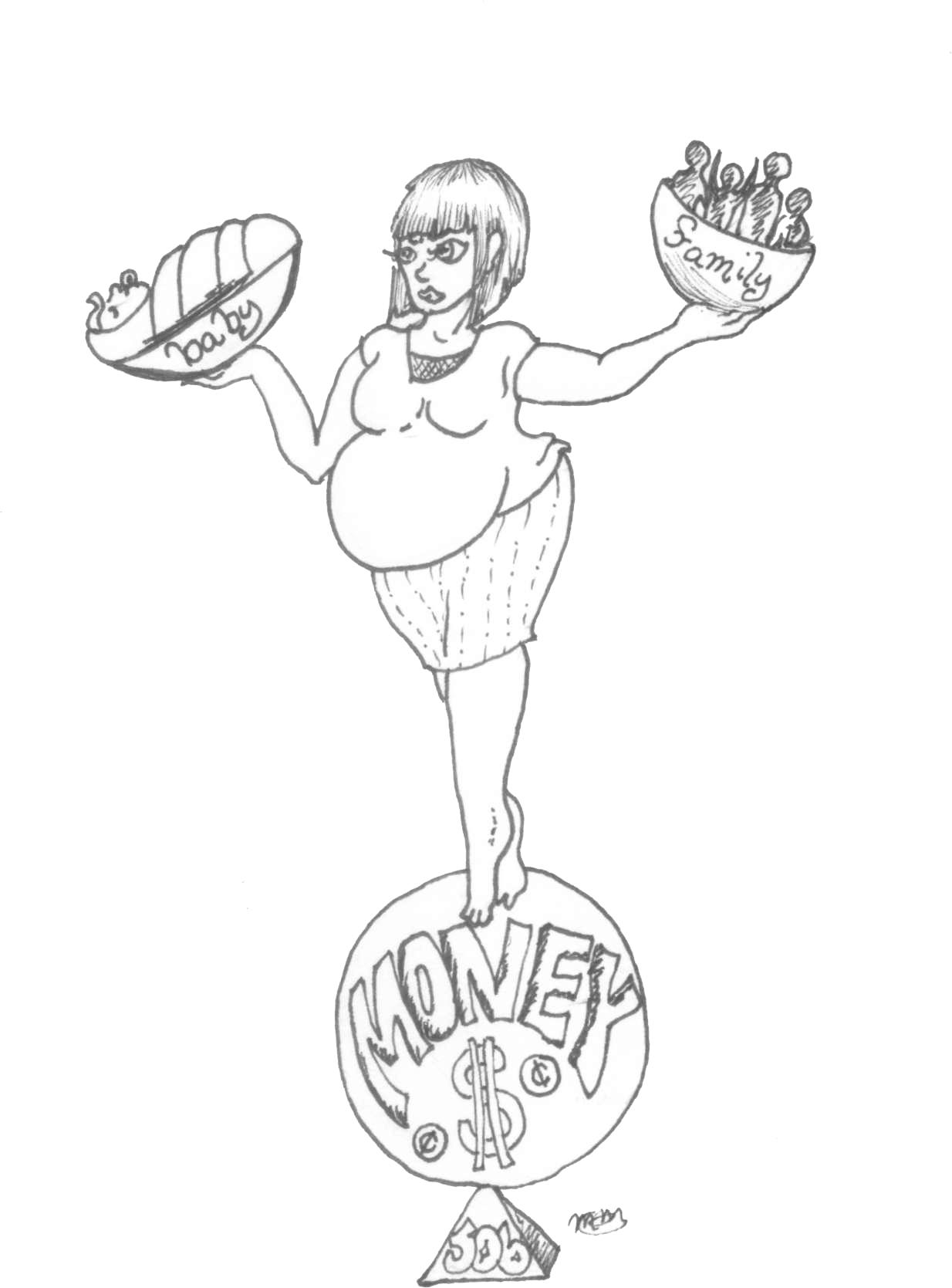By David Roman

With all the different Mother’s Days set around the world, it sometimes feels like the whole first two weeks of May should just be devoted to singing the praises of our mothers.
Among all the Facebook posts, all the photos of mothers accompanied by paragraphs detailing the hardships they’d all faced to love and care for their offspring and all the well-wishes for the mothers still struggling, one theme was recurrent in this year’s gush of appreciation, the ongoing fight for paid maternity leave.
Yes, paid maternity leave within the confines of the “work ‘til you die” capitalistic mindset of the U.S. sounds like a pipe dream, or like one of the frivolous public assistance benefits of social democracies within Europe which irritate conservative minded Americans enough to start tossing around the unfavorable label of “Communism.”
But it’s not a pipe dream and it’s not just Scandinavian Europe since basically all developed nations in the world offer some form of paid parental leave. It should be a right of anyone within a developed nation because it not only is the socially responsible thing to do but the sound economic decision.
“It’s time we stop treating child care as a side issue, or as a women’s issue, and treat it like the national economic priority that it is for all of us,” President Obama said in his 2015 State of the Union address, echoing the growing sentiment that a truly developed nation is one that supports women and children for the good of society instead of one that’s every man for himself.
Recently San Francisco passed a law providing a full six weeks of paid family leave to its citizens being the first in the nation and while California has a paid family leave program, it requires an application and not many apply, doesn’t give a grant to just anyone and is a rare program in the country, which is why President Obama has been pushing for this reform on the national level having already achieved paid parental leave for federal employees, however that excludes your typical government worker which are more state employees.
Furthermore, according to the U.S. Department of Labor only 12 percent of private sector workers have access to paid parental leave.
Women are discriminated against by current American policy, which under the Family and Medical Leave Act guarantees up to 12 weeks off from work within one year but there is no statute guaranteeing paid parental leave.
Meaning any woman employed at a public school, the DMV, any federally funding workplace or any private firm that offers the absolute minimum in benefits will have to go a fourth, a third if she teaches, of her work year without pay.
Whether the leave should be paid for by the government or employers is another hurdle, neither option is popular among conservatives with one calling for an increase in taxes and the other requiring business regulation but whichever way it’s a necessary benefit that should be put in place.
Here in the Riverside Community College District, full-time faculty are allowed to take time off for a pregnancy, miscarriage or childbirth for females and males but it’s still unpaid and only for however long a doctor’s note states, as outlined in the 2015-2018 RCCD and RCCD Faculty Association agreement.
This leaves women worried about income flow during this time with few options. They can fully rely on the pay of a partner or family, they can try to minimize the time taken off or they can use their accumulated sick leave.
However, what if a woman has no husband? With single-parent households only on the rise this wouldn’t be an uncommon scenario, some argue she can rely on family but what if she doesn’t have one?
Women who don’t have a support system in place yet want to take the appropriate time off to heal and bond with their child and don’t have savings to lean on might turn to options like payday lenders which charge unreasonably high interest on their loans.
We as a society shouldn’t force women to have to go on public assistance to support herself simply because she had a child, not if her regular pay could have supported them had she been working. It’s demeaning to women and takes away money from people who may need it more.
Women who lead work-oriented lives often try and minimize the time they have to take off, however there is a growing trend within the U.S. since the 90’s of cesarean section births, which currently account for more than 32 percent of all births in 2014, according to Childbirth Connection.
As with any C-section the mother generally takes an extra month to recover and the cost of the birth is almost double because it is a more complicated surgical procedure.
It’s these kinds of situations that force women into using their accumulated sick days to try and balance out their lack of pay, but even that won’t pay for most of the cost of not working for three months and a woman shouldn’t be forced into the situation of using their accumulated sick days.
Thanks to the decade old California family leave program we saw women in low-income jobs stay within the labor force after giving birth rather than flat out quit and go on public assistance as soon as she can’t keep working.
Women have to give birth. They are not equal to men, they are at a disadvantage that’s forced on them simply because they want to start a family and it is one that men don’t have to go through.
And it is for this law of nature that women should get paid parental leave. Yes we know that men don’t usually get to take parental leave but which society is more discriminatory, one that offers compensation for the perpetuation of our species or one that says to women “too bad you lost the genetics lottery now you not only get to suffer physically for it but financially as well.”
Women already have it hard enough in the workplace because of child bearing. As any ambitious and competitive worker will tell you; taking 3 months off from work doesn’t make you look better compared to the guy who never has to take a break from his career path.
We should not be the only industrialized country in the world without paid maternity leave. It’s about equity not equality, about solidarity not discrimination and most importantly it’s about not blaming women for performing the function that we need.












